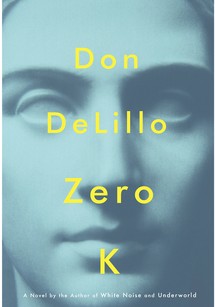Political violence, the numbing effects of technology and media, the complexities of language—all of Don DeLillo's epoch-defining preoccupations are here in his 16th novel, Zero K. But so is that oldest of fixations: What does it mean to die? And most of all, do we have to?
The book opens with Jeffrey Lockhart arriving at a remote underground facility somewhere in Central Asia at the invitation of his billionaire father, Ross. Jeffrey soon realizes he is in the midst of a nascent futurist cult secretly funded by government agencies, corporations, and private investors dedicated to life beyond death. He is there to say goodbye to his ailing stepmother, Artis, who, it turns out, has opted for cryopreservation—meaning her body and vital organs will be frozen in pods, to be reanimated when scientific and moral progress has rid us of disease and war, of death itself.
Zero K feels like a culmination—the second major one in DeLillo's career. Gone are the linguistic fireworks, the narrative games and puzzles, the omnivorous kinetic energy that pushed a novel like Underworld, DeLillo's fin de siècle opus, to the limits of what the form could contain. Here, his high modernism serves a different kind of intent. The momentum of plot yields to a disorienting stasis of thought in prose both spare and weighty, resonating like single plucked strings.
Take, for example, the section where we encounter a spectral Artis operating at the low hum of minimal consciousness in the cryonic chamber, outside time, "a single life in touch only with yourself." She recognizes vaguely who she is, but in the void wonders whether that self is anything other than words. This is Joyce's and Woolf's interior monologues taken to their logical extreme.
There is a thrill in all of this, and not the lurid thrill of staring into the abyss. It's the surprise of reading one of our finest writers as he forges a new path for his art and finds new tensions to tease out, new ways to hear the world. DeLillo has achieved what he seems to have been aiming for since 2001's The Body Artist—a metaphysical novel worthy of his ambition.


